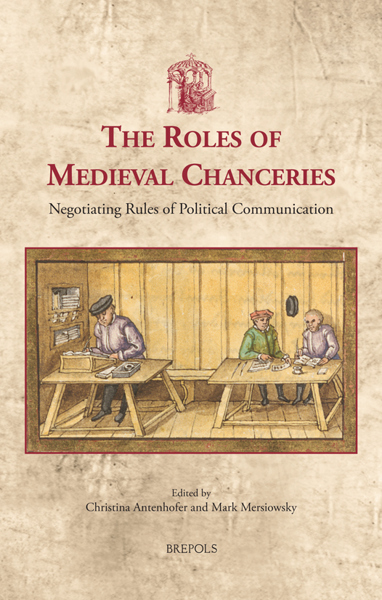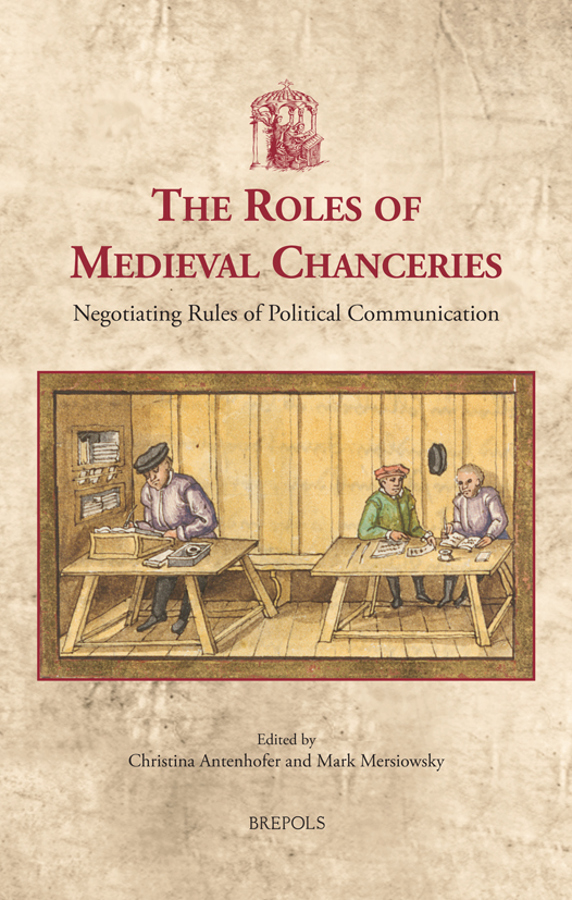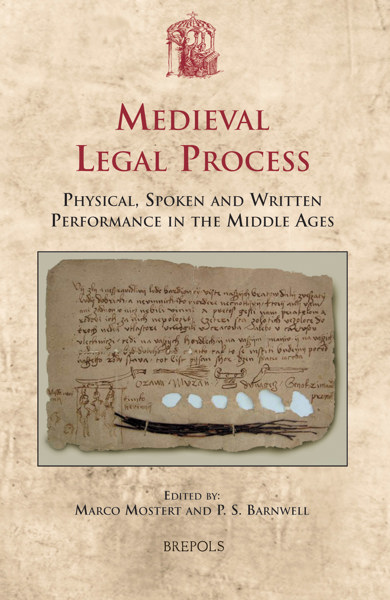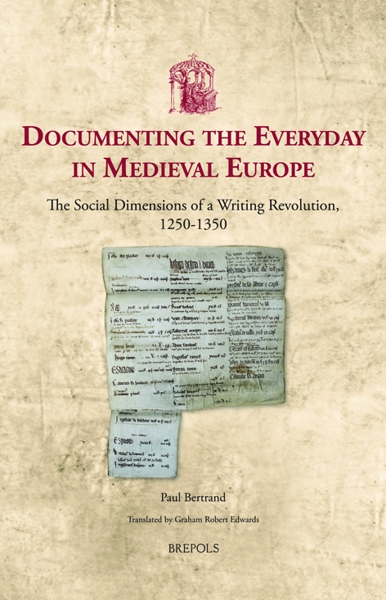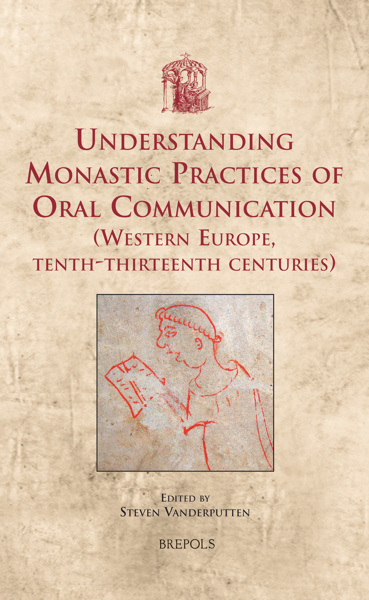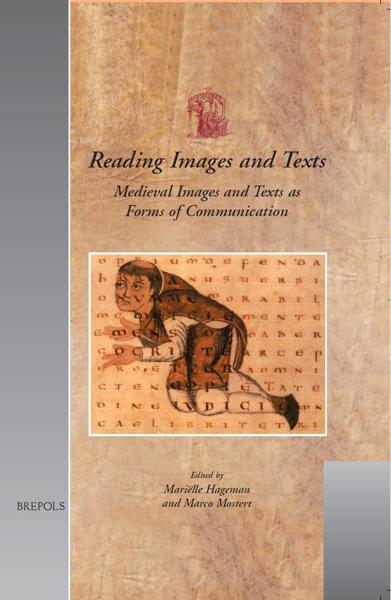
The Roles of Medieval Chanceries
Negotiating Rules of Political Communication
Christina Antenhofer, Mark Mersiowsky (eds)
- Pages: ix + 198 p.
- Size:156 x 234 mm
- Illustrations:22 b/w
- Language(s):English
- Publication Year:2021
- € 70,00 EXCL. VAT RETAIL PRICE
- ISBN: 978-2-503-58964-0
- Hardback
- Available
- € 70,00 EXCL. VAT RETAIL PRICE
- ISBN: 978-2-503-58965-7
- E-book
- Available
Explores processes of negotiating rules in medieval political communication through case studies which include the German, French, Italian, Tyrolian, and Gorizian chanceries, as well as diets.
« On apprend beaucoup, à la lecture de cet ouvrage. » (Benoît-Michel Tock, dans Francia-Recensio, 4, 2021)
“Dank der Einführung und der gut nachvollziehbaren Einteilung in Sektionen ergibt der Band insgesamt ein rundes Gesamtbild vor allem in Bezug auf spätmittelalterliche Kanzleien. Anhand anschaulicher Beispiele werden nicht allein Unterschiede zwischen dem deutschsprachigen Raum und Italien deutlich gemacht, sondern es wird vor allem gezeigt, dass die Entwicklung von der mittelalterlichen Kanzlei zur modernen Bürokratie keine lineare Entwicklung war, sondern das Ergebnis komplexer Aushandlungsprozesse auf verschiedenen Ebenen.” (Magdalena Weileder, in H-Soz-Kult, 16.02.2022)
"(...) eine grundwissenschaftliche Herangehensweise, die sich nicht allein auf die mittelalterlichen Dokumente beschränkt, sondern stets die mit den Schriftstücken verknüpften Akteure und Institutionen in den Blick nimmt, sie kontextualisiert und miteinander in Bezug setzt." (Stefan G. Holz, in Sehepunkte, 22/2, 2022)
“All in all, this volume on administrative and diplomatic practices and political communication represents an important contribution to the field. In particular, this collection of essays has to be praised for the in-depth investigation of a variety of case studies, which adds an insightful comparative perspective to the study of documentary production, literacy, construction of collective memories, and political power in Late Medieval Europe.” (Barbara Bombi, in The Medieval Review, 07/08/2022)
“The volume is a powerful corrective to the narrative of rational progress in administration towards the formation of the modern state that often, if only implicitly, underpins studies of medieval documentary production.” (Kathleen B. Neal, in Parergon, 39/2, 2022, p. 150)
"Den acht Beiträgen des Buches gelingt es duchgehend, anhand von Fallstudien Fragen aufzuwerfen und methodische Zugänge auszuprobieren (...): Zu groß ist der Gewinn, den die kanzleigeschichtliche Forschung aus den hier versammelten Fallstudien ziehen kann." (Markus Gneiß, in Mitteilungen des Instituts für Österreichische Geschichtsforschung, 132(2), 2024, pp. 416-417)
Medieval (political) communication followed rules that were defined, negotiated, and altered in processes of exchange. Conflicts resulting from different communication practices, as well as forms of innovation, revolve around rules that are not self-evident. Political actors such as princes and cities, chanceries, secretaries, ambassadors, and councillors formed rules of political participation, which became visible in written documentation. These rules were both formed and negotiated via processes of communication (a practice-oriented understanding of political participation). Medieval chanceries can thus be understood as a vast field of experimentation where different solutions were tested, passed on, or discarded.
This book explores communication practices in German, French, Italian, Tyrolian, and Gorizian chanceries, as well as at diets from the tenth to the sixteenth century. Its chapters examine royal, monastic, princely, and communal chanceries. For the early and high Middle Ages, a close analysis of documents will reconstruct negotiation and communication from within the documents themselves. For the later Middle Ages, focus will turn to the chancery, with the appearance of chancery orders and chancery annotations that provide explicit insight in communication between the chancellors, secretaries, and political authorities (princes or cities). The growing amount and variety of documents issued in the late Middle Ages allows us to retrace conflicts resulting from differing chancery practices as well as attempts to reorganise the chancery into a political instrument for the prince.
The processes of political communication will be followed in three parts. Part I focuses on the rules within documents. Part II looks at administrative processes within specific chanceries, while Part III explores forms of exchange between the chancery and other political actors.
Introduction — CHRISTINA ANTENHOFER
I. Rules Within the Documents: Chanceries and Charters
The Sanctiones of the Cluniac Charters of the 10th-11th Centuries
— SÉBASTIEN BARRET
Nulli... Si Quis and Their Copycats: Penal Forms in Later Medieval Charters
— ARNOLD OTTO
II. Chancery Rules and Organisation: The Chancery as Platform of Administration
Internal Rules of Late Medieval German Chanceries and their Heuristic Value — ELLEN WIDDER
Chancery Notations and Their Role as Means of Communication in Medieval Chanceries: The Case of the Bavarian and Tyrolean Chanceries — JULIA HÖRMANN-THURN UND TAXIS
Late Medieval Urban Chanceries: Town Clerks and Town Books — KLAUS BRANDSTÄTTER †
III. Platforms and Exchanges: The Chanceries as Platforms of Political Communication
Power Beyond the Rules: Formalism and Experimentation in the Italian Chancelleries, c. 1380–1500 — ISABELLA LAZZARINI
Antiquated Meets Modern: Conflicting Rules in Late Medieval Chancellery Practices: The Example of the Gorizian Chancellery — CHRISTINA ANTENHOFER
'Vermerkt die gewalt so in die cantzley geantwortet sind auf dem lanndtag... ': The Chancery and the Negotiations at the Tyrolean Diet, 15th Century — MICHAELA MARINI
Index of Names
List of Contributors
